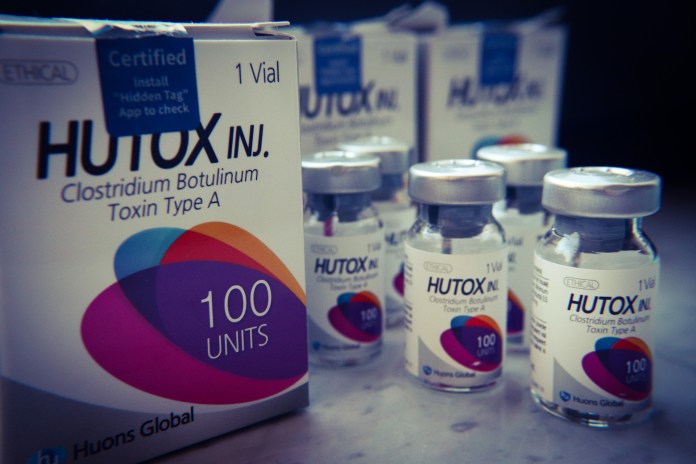Do you fancy facelifts, but you don’t think that you can stand the rigors of surgery and anesthesia that would come with a full facelift? If that is the case, then High-intensity Focused Ultrasound (HIFU) is a worthwhile cosmetic enhancement treatment to try.
It is a non-invasive cosmetic enhancement that would be a perfect replacement for facelifts for you considering that it also has pretty quick recovery periods than traditional facelift surgeries. For treatment, the HIFU facelift utilizes ultrasound energy to encourage collagen production beneath your skin.
This would, in turn, come with beneficial effects like firmer skin especially, if your skin had started to sag. HIFU isn’t just effective in reversing signs of aging, though.
In the past, it had helped in managing tumors to a wide scale, something which just adds more weight to its authenticity. In the cosmetics industry, HIFU was first used in 2008 and got the seal of approval from the FDA to be used in brow lifts.
In 2014, the FDA gave the green light for HIFU to be used in improving wrinkles around the neckline, and upper chest areas, etc. Several similar clinical trials have determined that HIFU is also beneficial in face-lifting and can help minimize wrinkles’ appearance on your face if administered properly.
Importantly, since it comes with quicker recovery periods, you’d also be able to see your treatment results in just a few months following the treatment. Does HIFU work? Is it really painless, though or that’s just another marketing trick? Find out below.
How painful is HIFU Facelift
It is natural to worry about how HIFU facelift would feel if you’re considering this treatment for the first time. Just like any surgical treatment, minimally, invasive, or not, you’d experience some discomfort during your treatment.
However, it is manageable, with most patients describing it as a mild tingling sensation or mild heat on your skin. Basically, the HIFU facelift is painless, but if you are worried about any discomfort during this treatment, you may be given an NSAID like ibuprofen before your treatment.
This is worth it because it is usually easy preventing pain than managing it. After your treatment, you may experience swelling and redness around the treatment area which are basically mild.
They will basically resolve shortly after your treatment. With a HIFU facelift, you really don’t have to be bothered about taking some time off.
You can always get back to your day-to-day routine when you get home after your treatment. It is also worth pointing out that unlike the traditional facelifts, which would demand excessive preparation, there isn’t much special preparation you need for your HIFU facelift.
On the scheduled date for the treatment, have your bath or shower as usual in the morning, and don’t wear any skincare products or makeup when going for the treatment. They will need to be removed before your facelift.
Here’s a roundup of what you can expect during your HIFU Facelift Treatment;
- Your surgeon will have the target treatment areas cleaned. Once it’s clean, they may apply an anesthetic cream over the skin area to be treated.
- You will then be treated with an ultrasound gel on the target areas. After that, the plastic surgeon will place the HIFU device on your skin.
- They will adjust this device’s light settings to the desired level before treating your skin. Treatment will involve delivering short-pulsed ultrasound energy, specifically on the target treatment area. This treatment will last for around 30 to 90 minutes depending on the size to be treated, among other factors, after which the HIFU device will be removed from your skin.
Can HIFU Damage your Skin?
HIFU facelift is a generally safe treatment. Nonetheless, it comes with a few risks you may need to be aware of, even though they’re pretty rare.
For instance, you may get red and blotchy patches on your skin after a HIFU facelift. This effect had been mostly reported with patients whose skins have higher risks of redness and highly sensitive.
The good news, however, is that this side effect is only temporary. Therefore you can have your HIFU Facelift treatment rest assured that it would not damage your skin.
If you’re concerned about the reddening or blotchiness on your skin after your HIFU facelift, your provider may give you creams to apply on the patches. You may also take some home if necessary.
Other than reddening of your skin, the other fairly common aftereffects you may notice after your HIFU facelift include numbness, swelling, hyper-pigmentation, and the absence effects. Here is how they manifest themselves.
-
Numbness
During your treatment, the sound waves your HIFU treatment emits penetrates deep into your skin layers to help get rid of even the deep-set wrinkles. As it penetrates deep into your skin layers, it may leave minor damages, which may cause mild numbness.
You’d most commonly experience the tingling sensation around delicate areas like your lips and ears. This aftereffect is also mild and really won’t need medication. It would also resolve within two weeks.
-
Swelling
Swollen or bloated skin after a HIFU facelift is another rare occurrence, but every person has different skin; therefore, there is a chance of getting swollen skin, so it is worth mentioning it. This swelling isn’t permanent either. It should resolve within a few days before the results of your HIFU facelift treatments become noticeable.
-
Hyper-pigmentation
Hyper-pigmentation is a situation where your skin develops a deeper hue in patches. For instance, it may get darker.
This aftereffect may be due to heat that’s emitted during this treatment. To avoid risks, especially if you have a history of hyperpigmentation, you may need a patch test just to ensure that you’re safe.
In Summation
HIFU facelifts work. A qualified skin doctor or plastic surgeon who will be helping you with the HIFU facelift will discuss all the risks linked to this treatment, so you consent to the procedure while aware of the risks. For the best results, they should also have practical plans to minimize the risks or chances of getting the side effects.
Give us a Call Now to Get Help
Have you been worried about the dangers of HIFU facelifts or the probability of it not working for you? Well, it works, and we’d also know if it may be harmful or may not work for you. Call us now to schedule your assessment.











